Festivals in Haryana in November 2025
Haryana, a state in northern India, is renowned for its rich cultural heritage, agricultural abundance, and vibrant festivals. The month of November brings a variety of festivals that reflect the traditions, rituals, and community spirit of the people. This article will explore the significant festivals celebrated in Haryana during November 2025, their historical contexts, rituals, and the cultural significance they hold for the local communities.
Read More About Hindu Philosophy
1. Chhath Puja
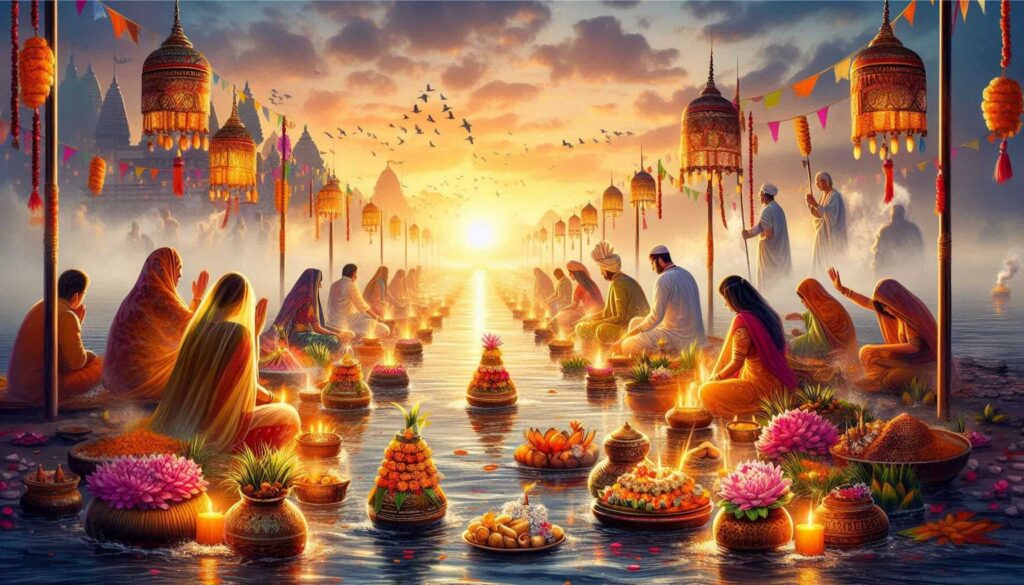
Overview
Chhath Puja is one of the most prominent festivals celebrated in Haryana, especially by the Bihari community. Although it originates from Bihar, its popularity has spread to various states, including Haryana, due to the migration of people. The festival is dedicated to the Sun God (Surya) and Chhathi Maiya, the goddess of energy and health.
Significance
Chhath Puja is celebrated to express gratitude to the Sun God for sustaining life on Earth and to seek his blessings for health and prosperity. The festival is observed over four days and involves various rituals, including fasting and offering prayers at sunrise and sunset.
Rituals
- Day 1 (Nahay Khay): Devotees take a holy dip in the river and prepare offerings, usually consisting of rice, lentils, and seasonal vegetables.
- Day 2 (Kharna): A day of fasting, where devotees prepare a sweet dish called ‘Kheer’ made of rice and jaggery to offer to the Sun God.
- Day 3 (Sandhya Arghya): The main day of the festival, devotees gather near water bodies to offer prayers during sunset, presenting traditional offerings.
- Day 4 (Usha Arghya): The festival concludes with morning prayers to the Sun God, followed by sharing of prasad.
Cultural Impact
Chhath Puja promotes communal harmony as people from various backgrounds come together to celebrate. It is a time for families to unite, share meals, and partake in the rituals together.
2. Diwali (Deepawali)
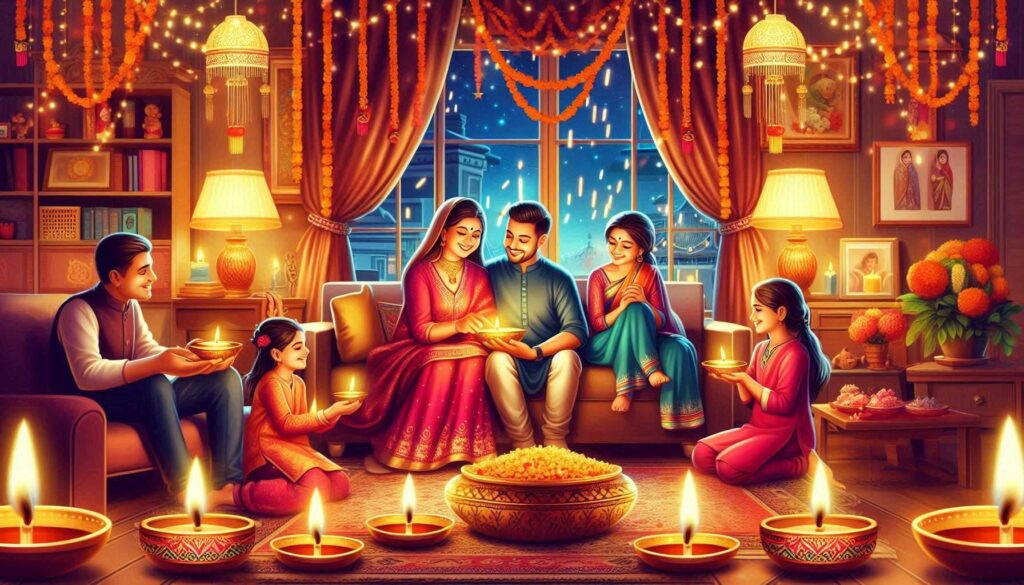
Overview
Diwali, also known as Deepawali, is the festival of lights celebrated across India, including Haryana. In 2025, Diwali falls on November 12. The festival symbolizes the victory of light over darkness and good over evil.
Significance
Diwali has various mythological associations, including the return of Lord Rama to Ayodhya after defeating Ravana and the worship of Goddess Lakshmi for wealth and prosperity. In Haryana, people celebrate Diwali with great enthusiasm.
Rituals
- Cleaning and Decorating Homes: In preparation for Diwali, families clean their homes and decorate them with rangoli designs and lights.
- Puja (Worship): On the day of Diwali, devotees perform Lakshmi Puja, offering sweets, fruits, and flowers to Goddess Lakshmi.
- Bursting Firecrackers: The evening is marked by lighting diyas (oil lamps) and bursting firecrackers, illuminating the night sky.
- Feasting: Families gather to share festive meals, including sweets like ‘Gulab Jamun’ and ‘Barfi.’
Cultural Impact
Diwali fosters a sense of unity and joy among families and communities. The festival is a time for renewing bonds and expressing gratitude for the blessings received throughout the year.
3. Gurpurab
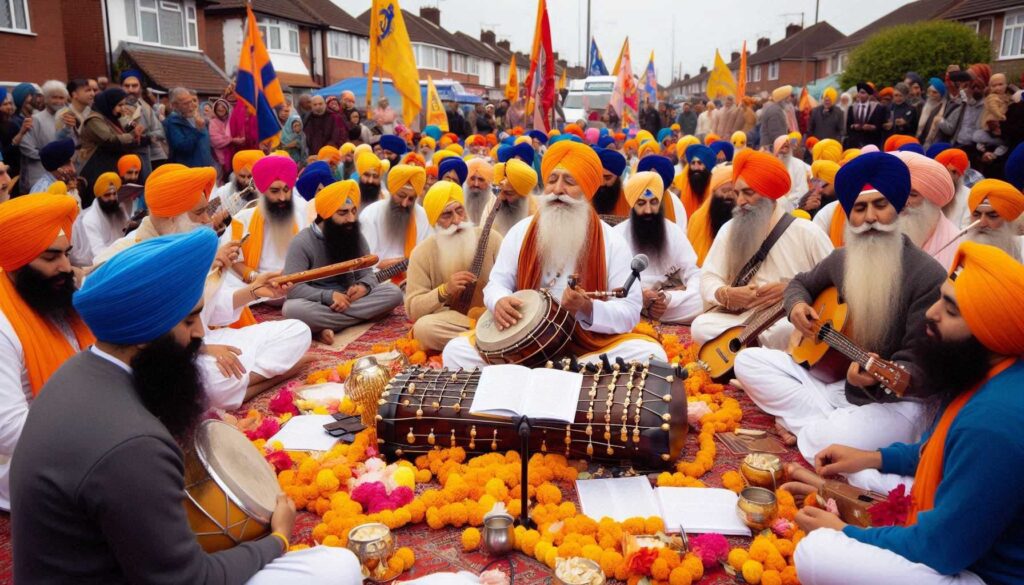
Overview
Gurpurab, also known as Guru Nanak Jayanti, is celebrated to mark the birth anniversary of Guru Nanak Dev Ji, the founder of Sikhism. In 2025, it falls on November 27. The festival is significant not just for Sikhs but also for the diverse communities in Haryana.
Significance
Gurpurab emphasizes the teachings of Guru Nanak Dev Ji, which include equality, selfless service, and devotion to God. It promotes communal harmony and encourages followers to engage in charitable activities.
Rituals
- Procession (Nagar Kirtan): Celebrations often begin with a procession through the streets, accompanied by hymns and music.
- Kirtan and Paath: Devotees gather at gurdwaras to listen to hymns (kirtan) and recite verses from the Guru Granth Sahib.
- Langar (Community Meal): A significant aspect of Gurpurab is the langar, where free meals are served to all, regardless of background.
Cultural Impact
Gurpurab brings together people from various communities to celebrate and share in the teachings of Guru Nanak. It promotes a spirit of service and community support.
4. Baisakhi (Vaisakhi)
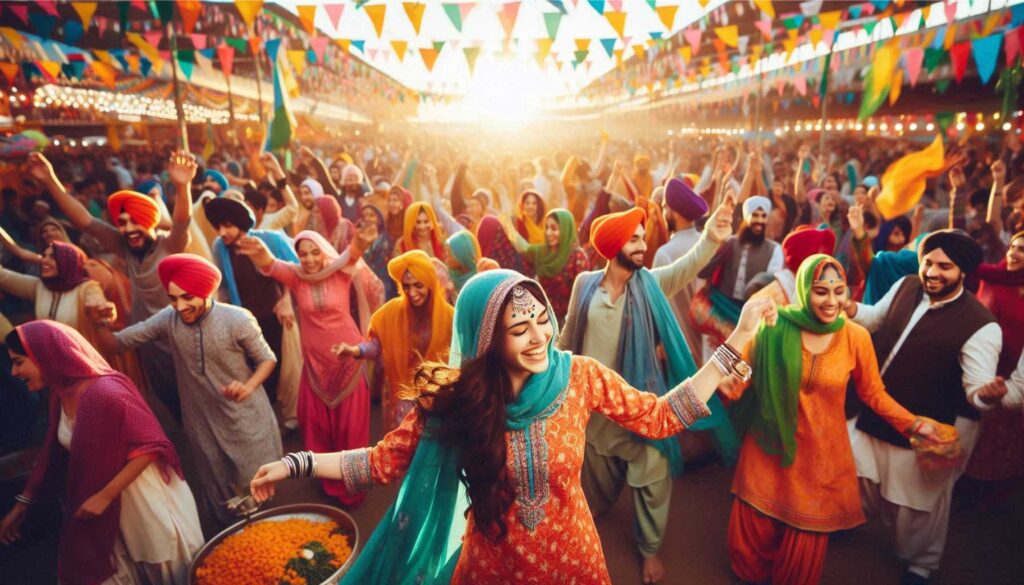
Overview
Although primarily celebrated in April, Baisakhi also holds significance in November, particularly in agricultural communities. The festival marks the harvest season and the beginning of the new year for farmers.
Significance
Baisakhi celebrates the harvest of the rabi crops and is a time for farmers to thank God for their bountiful harvest. It is also associated with the founding of the Khalsa by Guru Gobind Singh Ji in 1699.
Rituals
- Celebration of Harvest: Farmers celebrate by performing traditional dances like Bhangra and Gidda, expressing their joy and gratitude.
- Community Feasts: Families and communities come together to share meals, highlighting the importance of unity and togetherness.
- Puja and Offerings: Some communities conduct rituals to seek blessings for a prosperous harvest.
Cultural Impact
Baisakhi fosters a sense of community spirit among the farming population, strengthening bonds and encouraging collaboration among neighbors.
5. Kartik Purnima
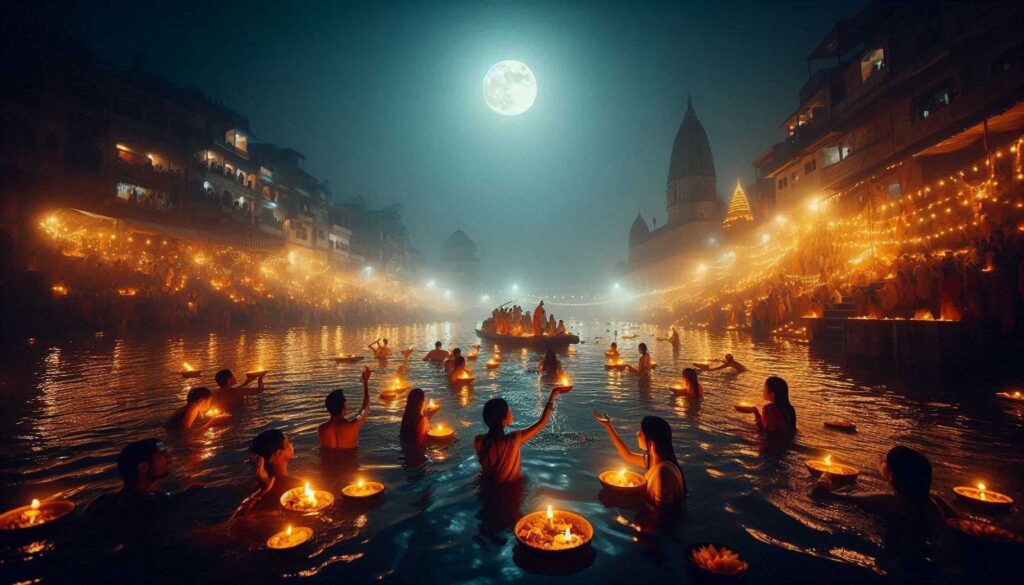
Overview
Kartik Purnima, which falls on the full moon day in the month of Kartik (November), is celebrated with great fervor in Haryana. The festival is particularly significant for devotees of Lord Vishnu.
Significance
Kartik Purnima is associated with the worship of Lord Vishnu and is considered auspicious for performing rituals and offering prayers to ancestors.
Rituals
- Holy Dips: Many devotees take a holy dip in rivers, especially in sacred water bodies, to cleanse themselves of sins.
- Puja and Offerings: Rituals are conducted at temples, and devotees offer flowers, fruits, and sweets to Lord Vishnu.
- Lighting Lamps: Lighting oil lamps is a common practice during Kartik Purnima, symbolizing the dispelling of darkness and ignorance.
Cultural Impact
Kartik Purnima brings families together as they engage in communal prayers and rituals. It reinforces the importance of spirituality and gratitude within the community.


